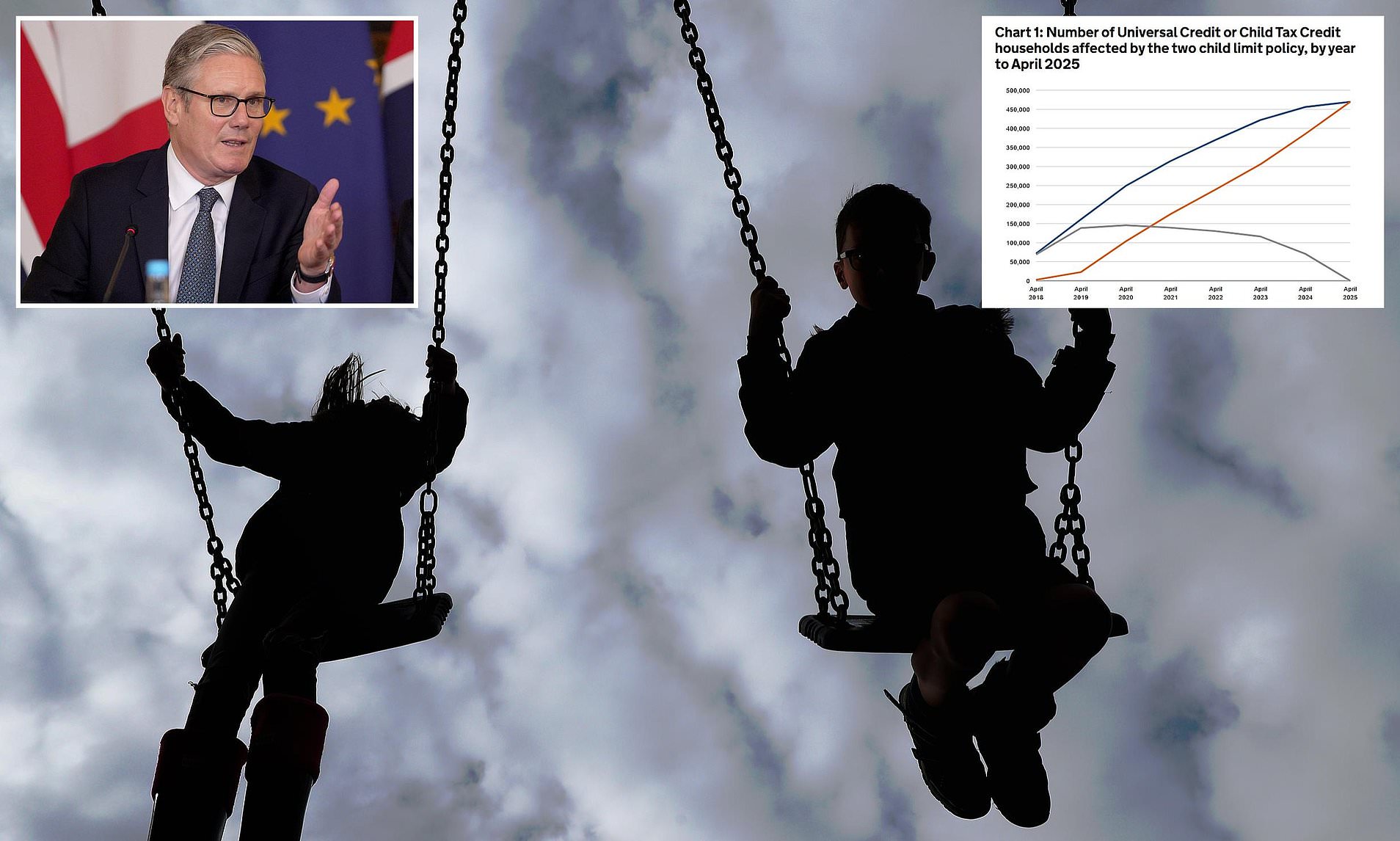Rising Child Poverty Amid Welfare Policy Controversy
New data has revealed a concerning trend in the number of children and families affected by the two-child benefit cap, sparking renewed debate over welfare policies in the UK. According to figures from the Department for Work and Pensions, 1,665,540 children in Great Britain are now living in households impacted by this restriction, marking an increase of 37,150 (2%) compared to April 2024.
The policy affects Universal Credit recipients, with 469,780 households currently under its influence. This represents a rise of 13,520 (3%) over the same period. Notably, nearly two-thirds (59%) of these households have members who are employed, highlighting the complex nature of poverty and the limitations of existing support systems.
This development comes at a time when Prime Minister Keir Starmer is grappling with maintaining current welfare payments, let alone implementing cost-saving measures. Despite challenges, he recently managed to pass revised disability welfare proposals through the House of Commons, even as some Labour MPs rebelled against the changes.
Political Tensions and Calls for Reform
The government is expected to release a child poverty strategy in the autumn, and various advocacy groups have urged it to include a commitment to abolish the two-child benefit cap. This policy limits child tax credit and universal credit to the first two children in most households, effectively leaving many families without adequate financial support.
Green MP Sian Berry has called for a ‘wealth tax’ to fund the removal of the cap, while Education Secretary Bridget Phillipson warned that the decisions made by Labour welfare rebels have made spending choices more difficult after the dilution of welfare reforms.
Campaigners argue that 109 children across the UK fall into poverty every day due to the policy, and scrapping it could lift approximately 350,000 children out of poverty immediately. The End Child Poverty Coalition emphasized that the two-child benefit cap must be addressed first, stating that any child poverty strategy will fail if this policy remains in place.
A Moral and Political Imperative
Joseph Howes, chairman of the End Child Poverty Coalition, stated that the government’s ‘moral mission’ to end child poverty will not succeed unless the two-child benefit cap is removed. He added that the government’s own data supports the need for immediate action.
Lord John Bird, founder of the Big Issue and crossbench peer, described the current situation as a ‘poverty crisis,’ emphasizing that government policies contributing to such conditions cannot be tolerated. He warned that the savings achieved through the cap would lead to greater societal costs in the long run, affecting schools, the NHS, and prisons.
Bird also stressed that ending the two-child benefit cap is both a moral and political necessity. He urged the government to take action during the autumn budget, noting that public patience with Labour’s inaction is wearing thin.
Advocacy and Future Strategies
Barnardo’s, a children’s charity, welcomed recent government announcements regarding the expansion of free school meals and the rollout of family hubs. However, they highlighted that without immediate action, child poverty will continue to rise.
The charity sees the upcoming child poverty strategy as a significant opportunity for the government to change the futures of millions of children. They emphasize that the strategy should focus on providing children with the chance to thrive and break the cycle of poverty.
As the debate continues, the pressure on the government to address the two-child benefit cap grows stronger. With increasing calls for reform and evidence of the policy’s impact on vulnerable families, the need for decisive action becomes more urgent than ever.







